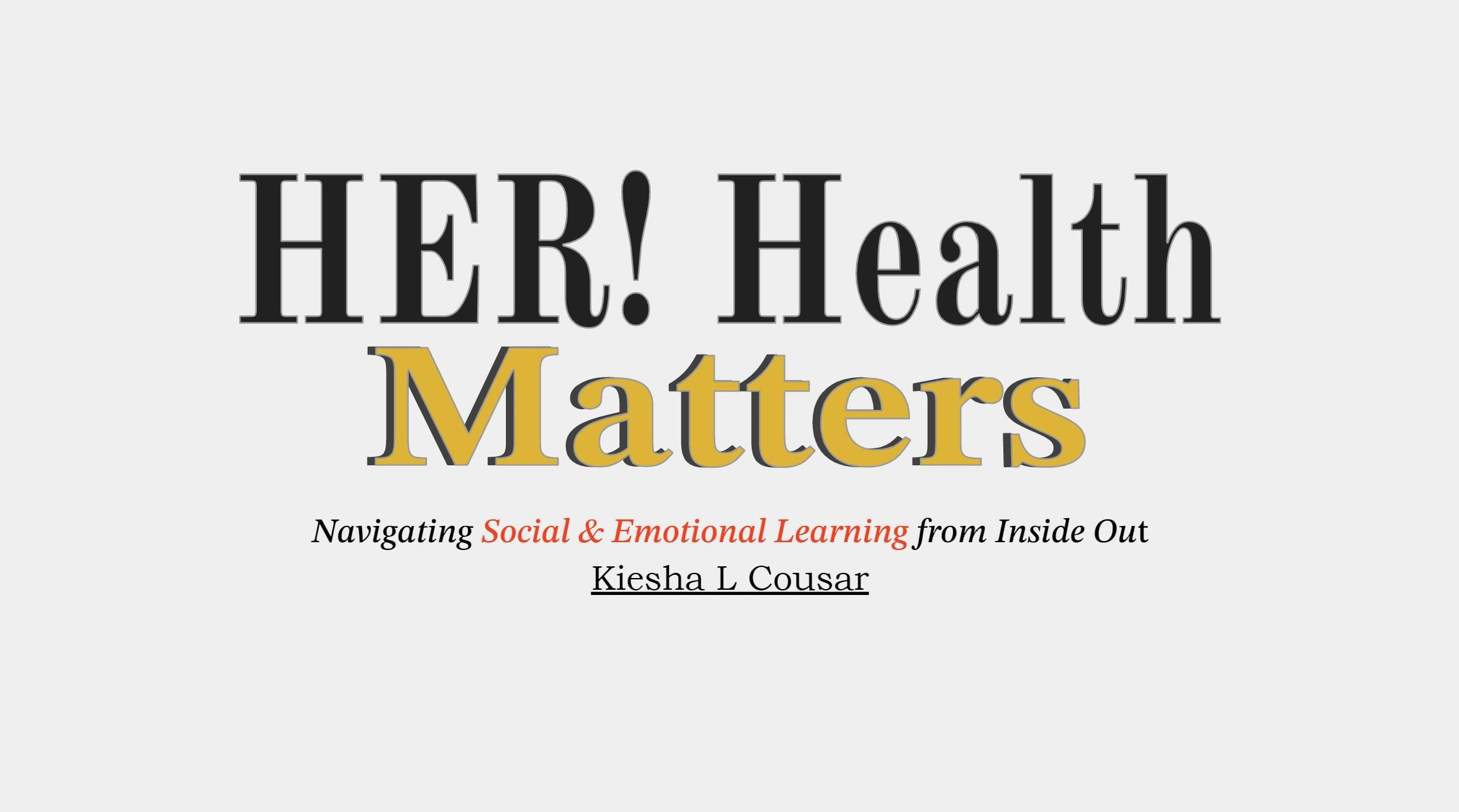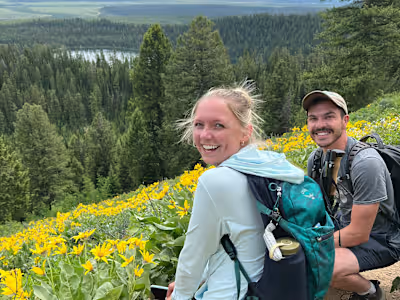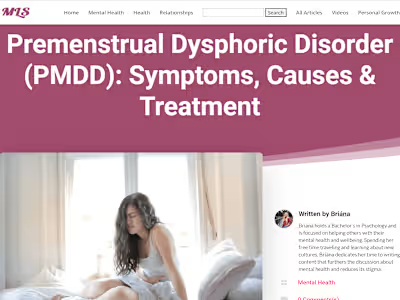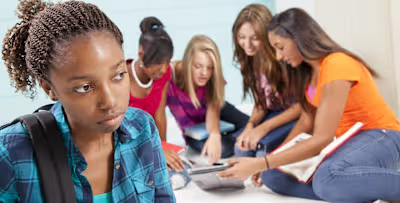Ghostwriting: HER! Health Matters Presentation Slides
HER! Health Matters
Navigating Social & Emotional Learning from Inside Out
Presentation written & developed by Briana Paige

Slide 1
Attention Grabber: Feel free to add your own if you’d like. I feel like you have a great way to kick off the presentation hidden up your sleeve! :)
“Young people are experiencing a level of distress that calls on us to act with urgency and compassion,” said CDC Division of Adolescent and School Health Director Kathleen Ethier, Ph.D. “With the right programs and services in place, schools have the unique ability to help our youth flourish.”
CLICK! - Slide 2 - Welcome and Introduction
Welcome, welcome, welcome I am COACH KIESHA L COUSAR, CEO of COUSAR Empowerment Personal Development Co & the founder of the EmpowerHER Empire. Personal Growth and Development for Women and Girls Etc.
I’m here to give you the straight-up TRUTH, education, encouragement, and empowerment to equip you to be able to care for your girl’s mental health.
60 min full of learning the truth behind mental health and how you can make it matter in your girls’ lives!
I invite you to utilize the handout I have here for reference and take note of any questions you may have for me.
With that being said, it is TIME to focus on why HER! Health Matters!
CLICK - Slide 3 - What is Mental Health?
It relates to your emotional, psychological, and social well-being.
It can impact daily life.
It can influence how we act with others.
It can be impacted by so many things (Biological factors, life experiences, family history).
It’s important to seek help and support to build mental health!
CLICK! - Slide 4 - Why Talk about Mental Health
Girls around the world and in our communities need our help.
They’re struggling with mental health challenges every day and it’s our turn to help them.
We need to start acting for ourselves and for our girls.
When we talk about mental health, we are increasing awareness and creating an opportunity to potentially increase well-being and decrease stigmatization.
So many people who suffer from mental health challenges are afraid to ask for help for fear of rejection or that no one will believe them.
We can be the change!
So let’s start the conversation. Let’s tear down the walls to bettering mental health, and let’s increase connectedness among our youth.
We have the ability to show our girls we hear them, and that we are there for them!
CLICK! - Slide 5 - Adolescent Girls Need Mental Health Education
I’m willing to guess you know someone who has been or currently struggles with mental health challenges.
This once-taboo topic is growing closer and closer to home.
I’ll even guess that your girls know a friend or classmate who has struggled with a mental health challenge and they probably have questions of their own.
The CDC reports that almost 3 out of every 5 adolescent girls (57%) have felt persistently sad or hopeless in 2021.
This is DOUBLE the rate of boys in the U.S. for the same year.
CLICK! - Slide 6 - Here’s What You’ll Learn
But this is not to create more fear and worry.
This is about offering you information so that you can help yourself and your girls.
So that you can learn and understand on a deeper level what mental health is and why we should be teaching our girls about it.
I’m NOT here to instill fear in you, I’m actually here to do the opposite.
My hope is that you will be able to release your fear and rely on faith and researched strategies to navigate social and emotional learning.
You will learn what protective and risk factors are for raising adolescent girls.
You should take away a new toolbox of coping skills and resilience strategies that you can use and teach your daughter, as well as techniques for releasing anxiety and fear.
Overall, I want each of you to gain mental, social, and emotional knowledge so that we can help our girls because HER! Health Matters!
CLICK! - Slide 7 - Mental Health Challenges are Impacting our Girls
Mental Health can have a wide range of impacts on our girls.
Some things you might notice are:
Changes in sleep
Comments of personal guilt
Changes in energy level
Changes in concentration
Appetite changes
Lack of motivation
Thoughts of suicide
This is not a complete list and it is also important to note that not every person struggling with their mental health will have the same symptoms.
One thing I know for a FACT, is that we need to keep lines of communication OPEN!
CLICK! - Slide 8 - Why We Talk About Mental Health
These lines of communication are CRITICAL!
Let your daughter know that no matter what is going on, you are a safe person for her.
You don’t want her to be afraid to tell you what’s going on out of fear of punishment or rejection.
Offer unconditional love and support. It can go a long way!
When we are comfortable talking about it, then our girls will learn to be comfortable talking about it too!
When we create these open channels, we encourage our girls to speak out about the things that are bothering them and to reach out for help when they need it.
One thing I did want to note is that every person and family experiences some sort of stress, it’s a natural thing.
Each person and family will have a different set of challenges they’re facing and it’s important to know that you’re never alone.
CLICK! - Slide 9 - Risk & Protective Factors
When we talk about ways to build support, we want to first look at what risk factors are present and also what protective factors are there.
On the other hand, protective factors are a sort of barrier between negative experiences and help lead to success.
CLICK! - Slide 10 - Risk Factors
Please note that there is never one risk factor or reason for a mental health challenge.
It is usually a combination of factors. That being said, I want to introduce you to general risk factors for adolescent mental health.
Risk factors are something that increases the likelihood of a problem occurring.
There are different categories for these factors.
Biophysical factors may include things like family mental health history, physical complications, chronic medical conditions, and the use of alcohol/drugs.
Psychological risk factors might look like life stressors, trauma, low self-esteem, and poor academics.
Social risk factors might be abuse, unhealthy relationships, minimal friends, bullying, poverty, discrimination, or the recent loss of someone.
The spiritual risk factors could look like thoughts of not being good enough or “beyond repair,” thoughts of not mattering in the grand scope of things, and conflict/doubt surrounding religious beliefs.
I want you to know that just because your child might experience a few of these risk factors, does not mean that they will have a mental health challenge. Resiliency plays a factor in this and I’ll touch on that a bit later.
CLICK! - Slide 11 - Protective Factors
Protective factors are the strengths and resources families draw on during difficult times to shield them from life's stresses.
I’ll break these up into 3 categories: personal, family, and school & community.
Personal protective factors might include attachment style as a child, positive beliefs about self, social skills, good coping skills, being physically healthy, experiences of success, and the ability to reflect on positive things.
Family protective factors could look like having a stable home environment, having structure and supervision, having a supportive environment, and having clear and consistent expectations for things in place.
The school and community protective factors could be a positive environment, clear and consistent rules or expectations, feeling connected, cultural and religious beliefs that support help-seeking behaviors and create a sense of purpose, and a range of activities including sports, volunteering, or jobs.
CLICK! - Slide 12- How to Teach our Girls
It is common for people to have some sort of risk factor in their life, as well as positive factors.
How we implement them into a learning strategy will be what helps us to learn and grow.
With this baseline, I want to introduce you to social-emotional learning and how it can be used to support our youth today.
CLICK! - Slide 13 - Social-Emotional Learning
Social-emotional learning, or SEL, is a process designed to support young students' well-being and academic performance in 5 key areas.
self-awareness, self-management, social awareness, relationship skills, and responsible decision-making.
These areas build upon Goleman’s model of emotional intelligence and serve as effective pillars for learning.
When we look at each area, we can begin to break it down to make it easier to understand.
CLICK! - Slide 14 - The Pillars
Self-Awareness: Students learn to recognize their emotions and how their emotions affect their behavior.
Self-Management: Students learn how to control their thoughts, emotions, and actions in a way that allows them to set more realistic goals.
Social Awareness: Students are able to understand another person’s point of view and how that person from a completely different background or culture may view things.
CLICK! - Slide 15 - The Pillars Continued
Relationship Skills: Students learn how to cultivate and maintain healthy relationships with others from all walks of life.
Responsible Decision-Making: Students build decision-making skills that allow them to act or respond to a situation in a reasonable and safe way.
CLICK! - Slide 16 - SEL Strategies
Some SEL strategies for students look like journal writing to encourage reflecting on thoughts and opening up
setting goals to work towards accomplishing big tasks
Share success with others to encourage others to speak up about their experiences or to hear other’s experiences with similar things
using artwork to express themselves when words are too difficult
They also look like creating open lines of communication so that students and youth feel heard and know who they can go to for help.
CLICK! - Slide 17 - SEL Strategies for Parents
SEL skills are not just for our kids, they’re for parents too!
Rest. Taking five minutes out of your day to just pause can do wonders to help.
As parents and caregivers, we don’t often get a lot of downtime, or any some days!
Taking a moment to pause, practicing being mindful of what is currently going on around you, and then responding can help you to make a clearer, more informed decision.
Be compassionate with yourself!
You are carrying a lot on your back and it can be exhausting.
It’s in these moments to remember how strong you are and that you don’t have to have it all together all the time.
Don’t tear yourself down for what you did or didn’t do, instead be kind to yourself because that’s how you grow.
It also teaches your kids not to fear mistakes.
Seek support!
We often try to have everything together and want to look like we have it all under control, but sometimes it can be a lot.
That is when you need to lean into your support system.
You are not alone and there are so many other moms out there dealing with similar things.
When we aren’t afraid to reach out during the hard times, we are being role models for our kids and amplifying the idea that seeking help is okay.
CLICK! - Slide 18 - Why Choose SEL?
As parents or community members, we tend to wear a lot of hats.
Mom, friend, protector, cheerleader.
The main point is that we are there for our kids and are ready to problem-solve like it’s no one’s business, and it’s for that reason that we should utilize SEL for our families’ mental health.
SEL is becoming more common around the U.S. because it works, not just for our kids, but for us too.
We need to learn these SEL strategies just as much as our kids do so that we can be supportive of them while helping ourselves too.
When we have strong skills in our pockets, we are able to be role models for our kids.
CLICK! - Slide 19 - Coping Strategies
So let’s talk the nitty gritty on how we are going to get through.
Learning and utilizing coping skills is an essential key in building up your toolbox to combat mental health challenges.
This is not an exhaustive list and some might work better than others so it’s important to try some of them out.
Deep breathing techniques
5 senses activities
Reframing thoughts
TIPP skill: temperature, intense exercise, paced breathing, progressive muscle relaxation
Reach out to trusted people
Mindfulness journaling
Get outside
CLICK! - Slide 20 - Resilience Strategies
Resilience is a bridge to achieving good outcomes and overall mental health when faced with negative circumstances.
Get Connected
Find something meaningful each day
Learn from past experiences
Remain hopeful
Utilize self-care activities
Be proactive
CLICK! - Slide 21 - Combatting Anxiety & Fear
This can all seem a bit daunting I’m sure.
I’m a mom myself and let me tell you, girl, I feel the fear and pressure too.
You’re not alone in this!
BUT there is a LIGHT in this tunnel.
If you want to learn to combat that fear and that anxiety, listen up.
Some tips for combating anxiety are:
Deep breathing
Exercising
Journaling
Reading
Talking to a professional
These might sound familiar and that’s because these skills help with a lot more than just one specific thing.
If you’re looking to beat your fears, then try these things:
Understand your fear
Know yourself and your boundaries
Self-care
Healthy eating
Seek therapy or counseling
CLICK! - Slide 22 - Takeaways
If there is one thing I sure hope you are walking away from here with, it’s that HER! Health Matters!
There are so many things we can do to start the conversation around mental health.
Today we briefly talked about risk & protective factors, why SEL is important, coping and resilience skills, and reducing fear and anxiety.
There is so much more we can say about mental health and so many other areas to dive into.
My biggest thing was hearing from you all.
I want to provide the information and help that you’re seeking because I know just how lost it can feel.
If you want more information or are feeling called to learn more, I have a few additional options for both you and your girls.
CLICK! - Slide 23 - Sources
You’re more than welcome to check these out!
CLICK! - Slide 27 - Take Action Today!
You know it takes a village to raise a girl these days and I’m here for you!
The EmpowerHER! Tribe is here for you!
If you’re looking for resources, education, or guidance, this is the place for you!
There’s something for both you and your daughter when you work with Kiesha L. Cousar!
Like this project
Posted Apr 10, 2023
Collaborated with a mental health professional to write her presentation, highlighting the importance of mental health awareness and social-emotional learning.
Likes
0
Views
4





